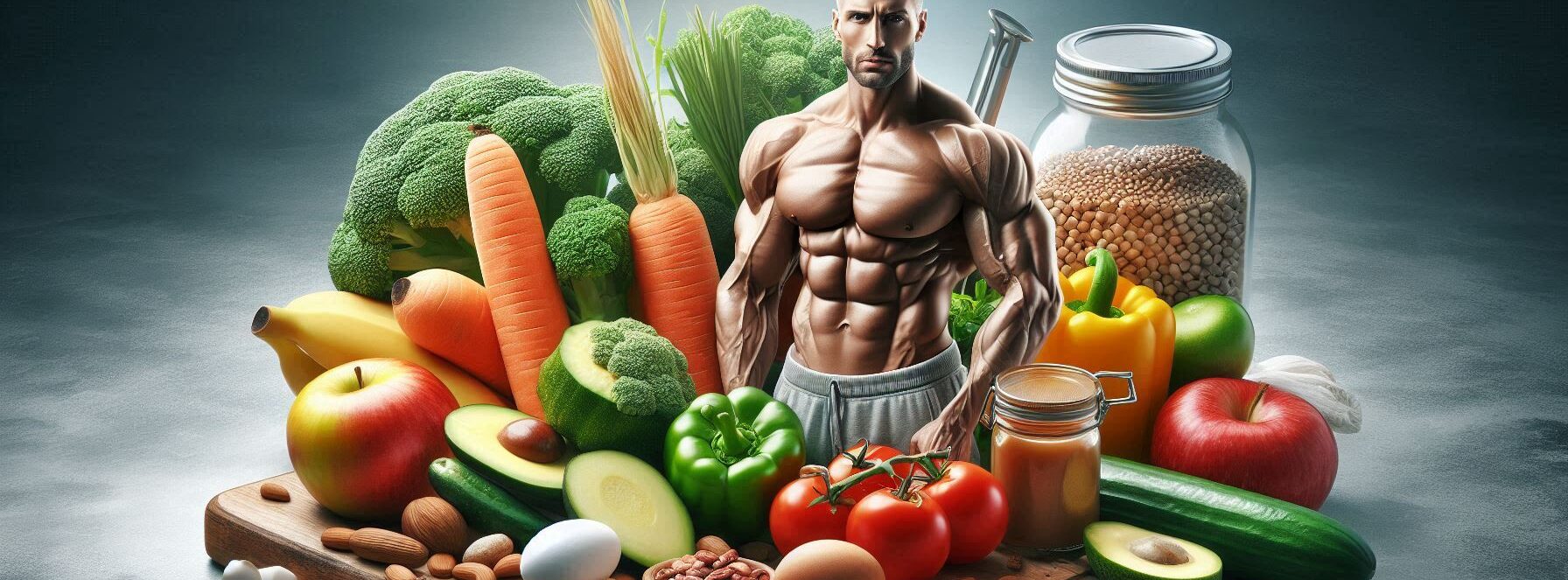Let’s face it: when it comes to weight loss, the phrase “you are what you eat” can feel a bit ominous.
If I’m eating pizza, does that mean I’m destined to become a walking pepperoni? Yikes! But fear not, dear reader!
Today we’re diving into the wonderful world of nutrient-dense foods—those magical edibles that help you shed fat without making your taste buds cry. So grab a snack (preferably one of these healthy options), and let’s get started!
Top Takeaways and Key Concepts
Eat leafy greens daily: Spinach, kale, and collard greens provide vitamins, minerals, and fiber while staying low-calorie.
Incorporate berries: Strawberries, blueberries, and raspberries satisfy sweet cravings while boosting antioxidants and fiber intake.
Choose lean proteins: Chicken, fish, beans, or tofu promote satiety and preserve muscle without excess fat.
Opt for whole grains: Replace refined carbs with quinoa, brown rice, or whole-grain bread for longer-lasting fullness.
Include healthy fats: Avocados, nuts, seeds, and olive oil reduce cravings and support heart and skin health.
Summary of This Article
The article highlights the importance of nutrient-dense foods for weight loss and overall health. It emphasizes consuming leafy greens, berries, lean proteins, whole grains, and healthy fats to increase satiety, stabilize blood sugar, and provide essential nutrients. By incorporating these foods into daily meals, readers can enjoy flavorful, satisfying options while supporting fat loss and maintaining energy levels. Making informed choices around nutrient density allows for guilt-free eating and sustainable healthy habits.
1. Leafy Greens: The Unsung Heroes of Your Salad Bowl

First up on our list is leafy greens. You know them: spinach, kale, collard greens—the kind of stuff that makes your plate look like it just returned from an eco-friendly vacation.
Honestly, if there were a superhero team for health foods, leafy greens would be wearing capes.
Why are they so great? Well, they’re packed with vitamins and minerals but low in calories. It’s like finding out that your favorite candy bar is actually good for you—except it isn’t (sorry).
These greens are high in fiber too! This means they fill you up without filling you out. So next time you're at dinner and someone suggests salad as an appetizer, just nod sagely and think about how much more room you'll have for dessert later.
By the way, did I mention they also help regulate blood sugar levels? It’s true! Eating leafy greens can keep those pesky sugar spikes at bay while ensuring you don’t end up crashing harder than my hopes of becoming an Olympic gymnast.
2. Berries: Nature’s Candy Without the Guilt
Now let’s talk about berries—those tiny fruits that look like nature's confetti but taste even better than cake frosting (okay, maybe that's debatable). Strawberries, blueberries, raspberries—you name it; they're all packed with antioxidants and fiber.
Interestingly enough, these little gems can satisfy your sweet tooth while keeping your calorie count down.
Picture this: instead of diving headfirst into a tub of ice cream after dinner (not judging!), grab some fresh berries instead. They’ll give you that sweet fix while offering health benefits such as improved heart health and reduced inflammation.
And here's something fun—I once tried to make a berry smoothie so thick it could stand up on its own.
Spoiler alert: I ended up with a blender disaster that looked like Jackson Pollock had gone rogue in my kitchen! But hey, if nothing else, I learned how deliciously versatile berries can be—from smoothies to salads or just straight-up snacking.
3. Lean Proteins: Not Just for Bodybuilders
Next on our adventure through nutrient-dense land is lean protein! Now before you roll your eyes thinking this is only for muscle-bound gym rats flexing in front of mirrors (seriously guys, put the weights down!), hear me out.
Lean proteins like chicken breast, turkey, fish (especially salmon), beans—and yes—even tofu are fantastic choices for anyone looking to reduce fat while still feeling full and satisfied after meals.
They provide essential amino acids needed by our bodies without piling on excess calories or saturated fats.
To be fair though; cooking chicken breast every night might lead to serious poultry fatigue among family members (or roommates).
So why not spice things up? Try marinating those bad boys or throwing them onto skewers with colorful veggies—it’ll make everyone forget they’re eating healthy food!
4. Whole Grains: Goodbye Empty Carbs!
Ahh…carbs—the double-edged sword of dieting! On one hand, we love them because pasta exists; on the other hand…well…let's just say nobody likes feeling stuffed after consuming half a loaf of bread alone during movie night (guilty as charged).
Here’s where whole grains come into play! Unlike their refined counterparts—which seem designed solely to taunt us—they're loaded with nutrients and fiber that'll keep us satisfied longer than regular white bread ever could dream!
Think quinoa instead of rice or whole grain bread over plain ol’ white slices—your body will thank you later when you're not reaching for snacks every hour like some sort of hungry gremlin.
Speaking of which—I once made quinoa salad expecting it would taste like cardboard—but surprise surprise—it was delicious! Who knew being healthy could taste good too?
5. Healthy Fats: Yes Please!
Finally—the moment you've all been waiting for—healthy fats! Wait…did someone say fats? Isn't that what we're trying to avoid here? Not quite! Healthy fats found in avocados, nuts/seeds & olive oil actually promote satiety and keep cravings at bay.
Let’s see…avocado toast has taken over brunch menus everywhere—and rightly so! Packed with monounsaturated fats plus vitamins C & E—it helps maintain skin elasticity while reducing bad cholesterol levels too!
On the other hand though—don’t go crazy pouring olive oil on everything unless you're preparing for competitive swimming events due to excessive grease slicks forming around your waistline!
Conclusion
In conclusion folks—nutrient-dense foods aren’t just trendy buzzwords thrown around by fitness influencers; they truly hold power over our weight loss journeys when incorporated wisely into daily meals.
So remember this next time temptation strikes during late-night snacking sessions!
Choose wisely & enjoy deliciousness guilt-free knowing each bite brings healthier habits closer together without sacrificing flavor along the way.
Suggested Resources:
Nutrient-Dense Foods You Should Include
https://www.healthline.com/nutrition/nutrient-dense-foods
The Importance Of Nutrient Density
https://www.eatright.org/health/wellness/preventing-illness/the-importance-of-nutrient-density
Frequently Asked Questions
What are nutrient-dense foods?
Nutrient-dense foods provide high levels of vitamins, minerals, and fiber while remaining relatively low in calories. They help support fat loss and overall health.
How do leafy greens support fat reduction?
Leafy greens are low in calories and high in fiber, helping you feel full longer while stabilizing blood sugar and reducing cravings.
Why are berries a good option for weight loss?
Berries satisfy sweet cravings with fewer calories and provide antioxidants and fiber that support digestion and overall health.
How do lean proteins help with fat loss?
Lean proteins promote satiety, support muscle maintenance, and help stabilize blood sugar, making them essential in a fat-reduction meal plan.
Are whole grains better than refined grains for fat loss?
Whole grains contain fiber and nutrients that digest slowly, keeping you full longer and preventing energy crashes linked to refined grains.
Which healthy fats should I include in my diet?
Healthy fats like avocados, nuts, seeds, and olive oil help control cravings, support heart health, and enhance nutrient absorption.
How can I add more nutrient-dense foods to my meals?
Add leafy greens to salads, include berries in snacks, choose lean proteins, swap refined grains for whole grains, and incorporate healthy fats in moderation.

Kevin Collier is a dedicated health enthusiast and writer for FatFAQ.com, where he shares his expertise on weight loss and maintaining a healthy lifestyle. With a focus on practical tips and evidence-based strategies, Kevin aims to inspire readers to achieve their health goals through informed choices. His engaging articles cover nutrition, exercise, and holistic wellness, providing valuable resources for anyone looking to improve their well-being. Passionate about helping others transform their lives, Kevin advocates for sustainable habits that promote lasting health and vitality.




